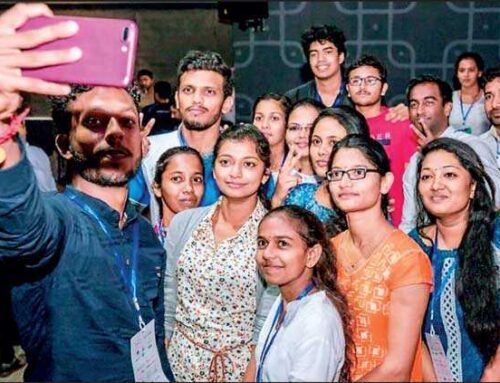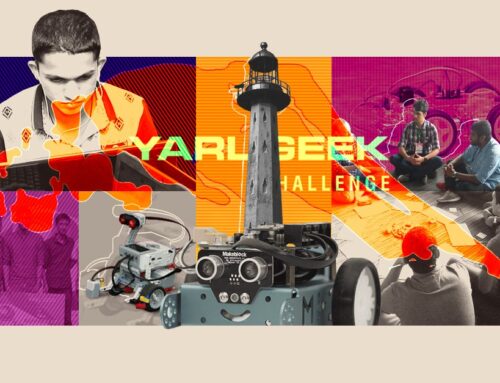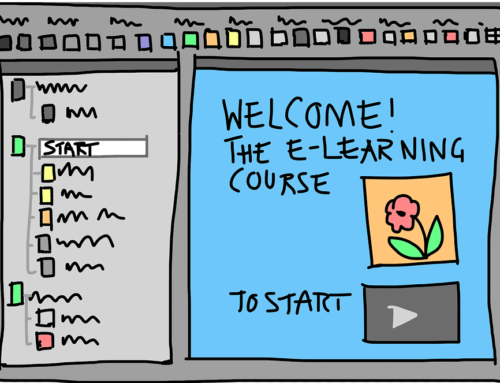It was that time of the year again. A weekend in the sun-soaked city of Jaffna. The Yarl Geek Challenge was in full swing. Organized annually by the Yarl IT Hub, the iconic hackathon is now in its 8th season. This year, 21 teams took part in the hope of making it to the finals. Kicking things off on a Friday morning, the teams dove into action right away.
Over the weekend, we witnessed a great many enthusiastic faces working on bringing their ideas to life. The mentors offered technical as well as business advice to each team in preparation for the pitches on Sunday. Eventually, amidst all the passionate pitches, only 10 teams made it to the grand finale. Here’s a glimpse of what we saw over the course of an exciting weekend in Jaffna.
Wanderers
Team Wanderers wants to address the importance of potassium in the human body. Unstable levels of potassium in our bodies often result in problematic situations. Lower levels of potassium cause hypokalaemia, while high levels would mean hyperkalaemia. Severe states of both these conditions can even lead to cardiac arrest.
Team Wanderers claim to have a better alternative. Through a wearable device, a patient’s ECG signal is monitored. Another device is connected to this wearable via Bluetooth. This device then identifies potassium levels by using the ECG signal data. Hence potentially avoiding hypokalaemia and hyperkalaemia situations. In terms of accuracy, the team claims Potassium levels could be assessed up to 85% accuracy.
Home Brands
The next team that took the stage, saw an opportunity to support the many home businesses in Sri Lanka. Their idea is to build a platform connecting businesses with potential customers. Currently, most home businesses thrive on platforms like Instagram, Facebook and WhatsApp. By bringing them all under one platform, Home Brands believes they could offer better value. An example the team shared was by providing analytics through the app.
Alongside this platform, Home Brands is aiming to offer consultancy services as well. This is to enable businesses to perform better on the platform. Based on the particular home business performance, consultations will be offered as a service as per the specific needs. For this, Home Brands will draw the expertise of experienced individuals.
Magenda
Magenda describes itself as an end-to-end agenda management solution. The team promises it to be a hub for event organizers. The app aims to offer attendees information about the event, live feedback and reactions to programmes. Similarly, for event organizers, it offers features for resource management, agenda management, task assignments, etc.
Magenda’s target market expands from event organisers to public and university clerks, and other similar segments. One may ask if this would work. The team notes that events of all sorts are happening in abundance nowadays. But more importantly, the Magenda team states that their market research shows positive feedback so far. Already, Magenda has even partnered up with 2 event management companies.
Team Pixies
Maintaining medical records can be a tedious task at times. This is especially true in Sri Lanka where practically all medical records are stored offline. Team Pixies believe that these could be digitised for more effective use. Their idea is to scan physical medical documents, where a software solution would extract the data and store it in the cloud-based system.
Due to the sensitive nature of the data, team Pixies states that everything uploaded to the cloud will be encrypted. As an additional security measure, the medical records can only be accessed via the mobile app and not on the web app.
Neer
Water contamination is a very real problem. Particularly in a country like Sri Lanka. The team notes that there are more than 15 districts in Sri Lanka, affected by water contamination. As a result, approximately 250,000 people are admitted to government hospitals each year. Enter Neer.
Neer is a real-time solar-powered ‘system that monitors the quality of water. It collects data about the water and uploads it to the cloud for analysis. Once the analysis is done, it offers real-time insights to users through mobile and web app interfaces.
Neer is currently looking at 3 customer segments. These segments are businesses requiring clean water, corporate entities focused on reducing their waste output, and environmentally conscious government organizations. While Neer is focusing on Sri Lanka, the team has also set their eyes on other markets such as Bangladesh, India, and African countries.
Techie Build
From this team, we saw a virtual marketplace called FarmStock. It aims to aggregate the farming community with distributors and fertiliser companies under one roof. Techie Build believes this would help solve two major problems in the farming community. The first being high waste. The second being a lack of knowledge among farmers to effectively utilise resources.





